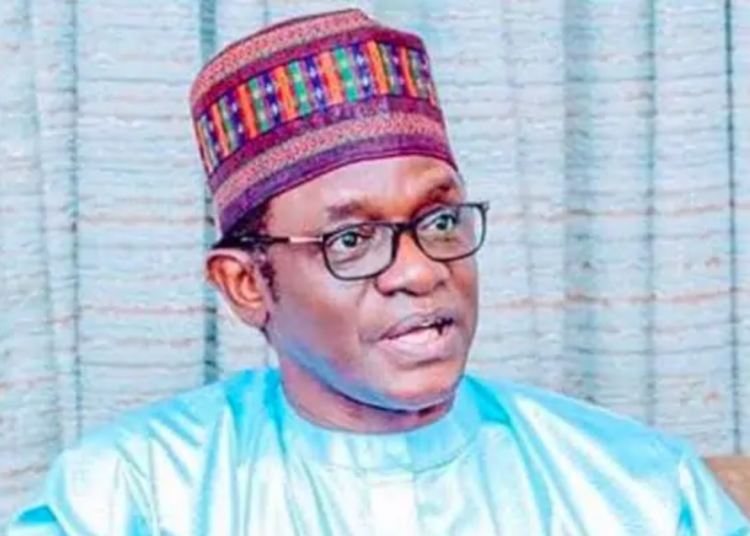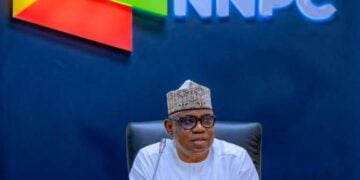The Yobe State Government said its post-insurgency recovery programmes were pr oritized based on infrastructural development to enhance livelihood of the Internally Displaced Persons (IDPs) and the host as well as affected communities across the state.
A statement issued by the Press Secretary to the Secretary to the State Government, Shu’aibu Abdullahi said the State Governor Hon. Mai Mala Buni stated this when the Country Director of the Save the Children International, Mr. Harvey Duncan called on him in Damaturu.
Buni, represented by the SSG, Alhaji Baba Mallam Wali said the efforts of his administration in the last five years have been yielding fruitful result in reconstruction, rehabilitation, and establishment of new structures to revamp education, improve healthcare delivery as well as provision of infrastructures such as roads, water, and electricity supply among others to make life more meaningful to the returnee and the host communities.
The governor, who appreciates the various efforts and commitments of donor agencies and other development partners including federal government agencies, said his administration will continue to strengthen the existing collaborations for better results.
He said development partners such as the World Bank, UN agencies and other humanitarian partners have played vital roles in filling the gaps of developmental challenges and complementing state government efforts in meeting the needs of the affected communities.
“As a government, we have continued to initiate various policies and programmes geared towards short, medium, and long-term stabilization
and development of communities in post-conflict recovery programmes.
“This administration has continued to sustain government support to
the most affected communities to have access to basic lifesaving
assistance, including food and non-food items, clean water,
healthcare, education, and sanitation,” he assured.
Buni stated that Yobe State being the second most affected by the
scourge of the Boko Haram insurgency after Borno will continue to
formulate policies that will fast-tract speedy implementation of all
outlined plans for better results.
“This unfortunate reality has led to widespread displacement and
instability within the communities.
“In the midst of this turmoil, the State has become a sanctuary for
numerous internally displaced persons (IDPs) who have been forced to
flee their homes in search of safety and security.
“These displaced individuals and families represent the very essence
of resilience in the face of adversity, and it is a collective
responsibility to ensure their well-being and dignified existence.
“The conflict brought by the insurgency has left in its wake a trail
of destruction decimating basic infrastructure, health and educational
facilities, commercial buildings, private residences, and agricultural
assets, however, amidst the rubble there lies an unwavering resolve to
rebuild and rejuvenate the communities.
“Yobe State envisions a transformative future where Internally
Displaced Persons (IDPs) find dignified, safe, and voluntary solutions
to their protracted displacement whether through relocation, local
integration within host communities, or the return to ancestral homes
and focus remains steadfast on empowering IDPs with livelihood
opportunities.
The Country Director of the Save the Children International, Mr.
Harvey Duncan, said he visited the state with a view to strengthen
partnership and discuss areas of collaboration with the state
government and align efforts towards achieving sustainable development
goals in Yobe State.











